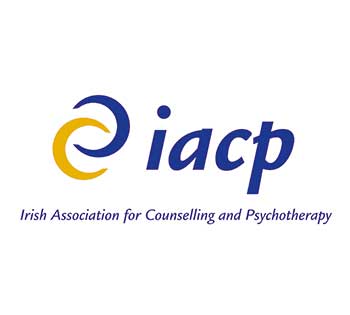
IACP approved for 30 CPD hours
Dates: 2025
Fri 19 Sep 2025 9.30am – 4.30pm
Fri 26 Sep 2025 9.30am – 4.30pm
Fri 03 Oct 2025 9.30am – 4.30pm
Fri 10 Oct 2025 9.30am – 4.30pm
Fri 24 Oct 2025 9.30am – 4.30pm
Fee: € 680
Historical & Philosophical Underpinnings of CBT: Learn about the history of CBT & discover the philosophical underpinnings of CBT, examining the influence of stoicism, rational emotive behaviour, and other philosophical schools of thought that emphasise rational thinking and the role of cognitive processes in emotional regulation.
Core Principles of CBT: foundational principles of CBT, including the cognitive model, the role of behavioural techniques, and the emphasis on collaborative empiricism and skill development in therapy.
How to Integrate CBT into Your Current Theoretical Framework: This topic addresses the strategies for seamlessly incorporating CBT methods into your existing practice, whether it’s psychodynamic, humanistic, existential, or another orientation. It focuses on identifying synergies between CBT and other therapeutic approaches, respecting the unique aspects of each client’s needs and your own style as a therapist, while ensuring that the integration enriches the therapeutic process rather than diluting it. This involves understanding the points of convergence and divergence, and developing a cohesive approach that allows for the flexibility and adaptability necessary in a pluralistic therapeutic environment.
Understanding and Developing a CBT Model: Learn how to conceptualise cases through the CBT lens, developing clear models for understanding clients’ problems, and designing targeted therapeutic interventions and share conceptualisations with your clients.
Introducing the Treatment Model to Clients: Master the skills needed to effectively communicate the CBT model to clients, ensuring they understand the rationale behind the techniques and the expectations of their active participation.
Assessment and CBT: Cover the strategies and tools for assessing clients’ difficulties, including the use of structured interviews, questionnaires, and the importance of ongoing assessment throughout the therapy process.
Case Formulation in CBT: Learn the art of case formulation, a crucial skill in CBT that involves integrating assessment information to create a coherent framework for understanding a client’s issues and guiding treatment.
Session Structure in CBT: Review the typical structure of a CBT session, including agenda setting, reviewing homework, addressing current problems, and setting new homework, to create a focused and effective therapeutic encounter.
The Therapeutic Process & Alliance in CBT: Examine the key elements of the therapeutic process in CBT, including building a strong alliance, working with resistance, and repairing ruptures to facilitate client progress.
Understanding and Working with Core CBT Skills: Gain proficiency in core CBT skills such as collaborative practice, guided discovery, Socratic questioning, cognitive restructuring, behavioural activation, behavioural experiments and relapse prevention, and understand how to apply them in therapy.
The Importance of Homework in CBT: Discuss the critical role of homework in CBT, how to effectively set and review it, and strategies for increasing adherence to ensure that learning and progress extend beyond the therapy sessions.
Introduction to CBT for Depression: Investigate CBT’s approach to treating depression, focusing on identifying and modifying maladaptive thought patterns and behaviours.
Introduction to CBT for Anxiety Disorders: Explore CBT interventions for a range of anxiety disorders, emphasising exposure-based techniques and cognitive restructuring.
Trauma Awareness in CBT: Discover how CBT can be applied in a trauma-sensitive manner, understanding the impact of trauma on thoughts, emotions, and behaviours. Learn strategies to adapt CBT techniques to support clients with trauma histories in a compassionate and effective way.
Behavioural Interventions: Learn about behavioural strategies in CBT, including the use of behavioural activation , exposure and exposure and response prevention.
Cognitive Interventions: Identify negative automatic thoughts, underlying assumptions, and core beliefs, and learn how these cognitive processes contribute to clients’ difficulties.
Evaluating Outcomes in CBT: Understand the methods for measuring therapy outcomes, the importance of empirical evaluation, and the use of these evaluations to inform practice and ensure the efficacy of interventions.
Integrating Mindfulness: Learn to blend mindfulness techniques with cognitive-behavioural strategies, enhancing clients’ ability to observe their thoughts and feelings without judgement and improve their emotional well-being.:
Qualifications:
Susi Lodola is an experienced psychotherapist and clinical supervisor, known for her engaging and practical approach to training and development. In her private practice, she helps clients build emotional resilience and navigate mental health challenges through evidence-based therapeutic approaches. As a clinical supervisor, Susi supports fellow therapists in deepening their skills and confidence, fostering professional growth and enhancing therapeutic outcomes.
Alongside her clinical work, Susi is a lecturer at IICP College, where she plays an integral role in shaping the next generation of psychotherapists. Her teaching blends academic theory with real-world insights, ensuring students gain not just knowledge but the confidence to apply it effectively in practice. Susi’s ability to simplify complex concepts and create a supportive learning environment consistently receives positive feedback from students, many of whom credit her for advancing their professional development.
Beyond academia, Susi delivers corporate workshops on mental health and wellbeing, equipping organisations with tools to foster healthier, more resilient workplaces. She has also provided specialist training for mental health practitioners, including those working within NEPS (National Educational Psychological Service).
A strong advocate for continuous learning, Susi deepened her expertise by attending a specialised CBT workshop at the Beck Institute in Philadelphia, focusing on CBT for weight management. This advanced training enhances her ability to support clients struggling with emotional eating, providing them with practical and effective strategies grounded in CBT principles.
Susi’s reputation as a trainer extends to her Continuing Professional Development (CPD) courses, which are recognised for their engaging delivery and immediate applicability. Her CPD programmes focus on practical, evidence-based skills across areas such as CBT, adolescent mental health, and emotional eating. Each course is designed to equip participants with tools they can confidently bring into their practice. Approved by the IACP, her workshops consistently attract therapists seeking high-quality, impactful training that contributes to both their professional growth and accreditation.
It can be frustrating for parents and care givers when a child doesn’t eat or avoids some food groups altogether. You can read some more on the topic in one of my blog posts.
Post Natal Depression often goes diagnosed. Speaking about the topic will help raise awareness and will help to normalise it and help to remove any stigma associated with it. Many new Mums or Dads may feel guilty about feeling low after a Baby is born and therefore do not speak up and seek help. Counselling is very effective in helping people overcome PND and the sooner it is addressed the better the outcome.


© Copyright 2022 | Susi Lodola. All Rights Reserved | Powered by Digital Media Center